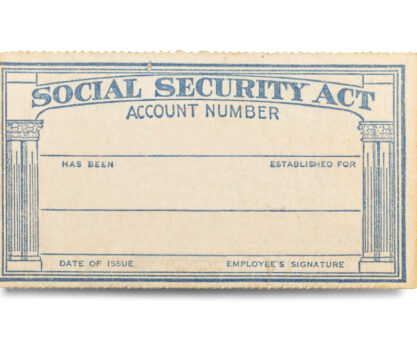As you know, if you file for Social Security before your Normal Retirement Age (NRA) and continue to work, you’ll be subject to an Earnings Test. Any income you earn that exceeds the earnings test threshold will reduce your benefit. However, for some retirees, there’s a bit of confusion about what’s included in the Earnings Test.
What Type Of Retirement Income Is Considered Earned?
According to the IRS, earned income includes all the taxable income and wages you get from working for someone else, yourself, or from a business or farm that you own. This means distributions from your Thrift Savings Plan (TSP) are not considered earned income under the Social Security Earnings Test. Other types of retirement income that may be taxable but are not “earned income” under IRS rules include:
- Your FERS annuity (pension)
- Social Security
- The Retiree Annuity Supplement
- Lump-sum annual leave payments
- Distributions from your traditional TSP
- Distributions from traditional IRAs
- State income tax refunds
- Interest, Dividends, Capital Gains & Alimony
- Unemployment compensation
- Lottery jackpots
“Social Security allows for a more generous Earnings Test in the year you reach your NRA.”
2024 Social Security Earnings Test
For 2024, the Earnings Limit is $22,320. If you earn more than $22,320 in 2024 while collecting benefits, $1 will be withheld from your benefit for every $2 in earned income above the limit.
Social Security allows for a more generous Earnings Test in the year you reach your NRA. For those who reach their NRA in 2024 and continue working while collecting benefits, you can earn up to $59,520 without a reduction of your benefit. If you earn more than $59,520 in 2024, $1 will be withheld for every $3 in earned income above the limit for the months prior to turning your NRA.
Benefit Reductions Due To The Earnings Test Are Temporary
Good news for retirees collecting Social Security and worried about earning too much: benefits reduced by the Earnings Test are not lost forever. Once you turn your NRA, there’s no limit on your earnings and your benefit is recalculated to give you credit for the amount withheld under the Earnings Test.
However, the reduction for filing early before your NRA will continue to apply. For example, if you were born in 1960, your NRA is 67 but, if you file early at age 62, your benefit is reduced by 30% for the rest of your life.
Before you decide to file early for Social Security benefits, connect with an FRC® trained advisor to discuss the best strategy for your financial situation.



























